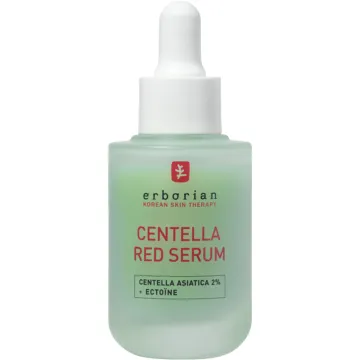

What is rosacea and what are its main symptoms?
Rosacea is a chronic dermatological condition that manifests itself mainly as redness on the face, often accompanied by small inflammatory pimples. The areas most affected include the nose, cheeks, forehead and chin. Symptoms can also include a burning or stinging sensation, dry, sensitive skin, and eye problems such as red, irritated eyes.
What causes rosacea?
The exact causes of rosacea are not fully understood, but several risk factors have been identified. Triggers can vary from person to person, but often include environmental factors such as sun exposure, stress, alcohol consumption, certain spicy foods and extreme temperatures. Genetic predisposition may also play a role in the onset of this condition.
How is rosacea managed and treated?
Treating rosacea generally involves a multi-faceted approach. Using topical creams and gels prescribed by a healthcare professional can help reduce inflammation and redness. Oral antibiotics may also be recommended in more severe cases. It is crucial to protect the skin from the sun and to identify personal triggers in order to avoid them as much as possible. Laser and light therapies can be considered to reduce the visibility of blood vessels.
What precautions can be taken to minimize rosacea symptoms?
Rosacea sufferers are advised to adopt a gentle skin care routine. Using alcohol-free, fragrance-free and non-abrasive cleansers is essential to avoid aggravating symptoms. It's also important to use moisturizers specially formulated for sensitive skin, and always apply a suitable sunscreen.
Are there any effective natural treatments for rosacea?
Although medical treatments are often necessary, some natural remedies can complement the conventional approach. The use of anti-inflammatory plant extracts such as aloe vera or chamomile can bring relief. Similarly, dietary modifications to reduce consumption of trigger foods and increase omega-3 intake can help control symptoms.
What types of rosacea are there, and how do they differ?
Rosacea can be classified into several subtypes, each with distinct characteristics:
Each type requires a specific therapeutic approach, often combining local and systemic treatments to effectively manage symptoms.
Is rosacea a condition that only affects the skin?
Although rosacea is primarily a skin condition, it can also affect the eyes, a condition known as ocular rosacea. Symptoms can include dry, irritated and red eyes, a sensation of a foreign body in the eyes, and sometimes blurred vision. It's crucial for those with these symptoms to consult an ophthalmologist for appropriate management in addition to dermatological care.
Can rosacea be prevented?
Preventing rosacea can be difficult, as the exact causes are not yet fully understood. However, it is possible to minimize flare-ups by identifying and avoiding personal triggers. Rigorous sun protection, avoiding alcoholic and spicy drinks, and maintaining a balanced diet can help stabilize symptoms. A skincare routine adapted to sensitive skin is also recommended.
How does rosacea affect the quality of life of sufferers?
Rosacea can have a significant impact on quality of life. Visible symptoms can affect self-esteem and social interaction. What's more, the constant management of flare-ups and sensitivity to triggers can also lead to stress and anxiety. It's important to discuss these aspects with a healthcare professional to obtain not only medical treatment but also psychological support if necessary.
Are there any new developments in the treatment of rosacea?
Advances in rosacea treatment include new topical formulations and advanced therapeutic options such as light and laser therapy, which can help reduce redness and visible blood vessels. Recent studies are also exploring the role of the skin microbiome in rosacea, paving the way for potential treatments targeting the skin's bacterial balance.